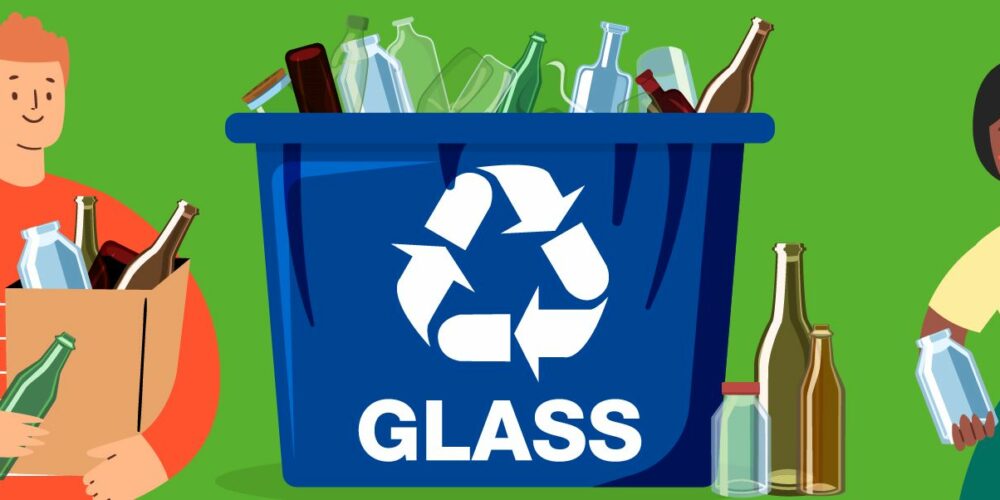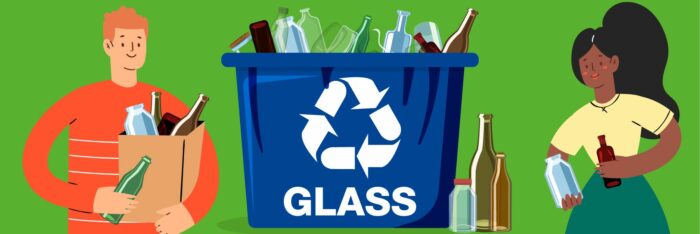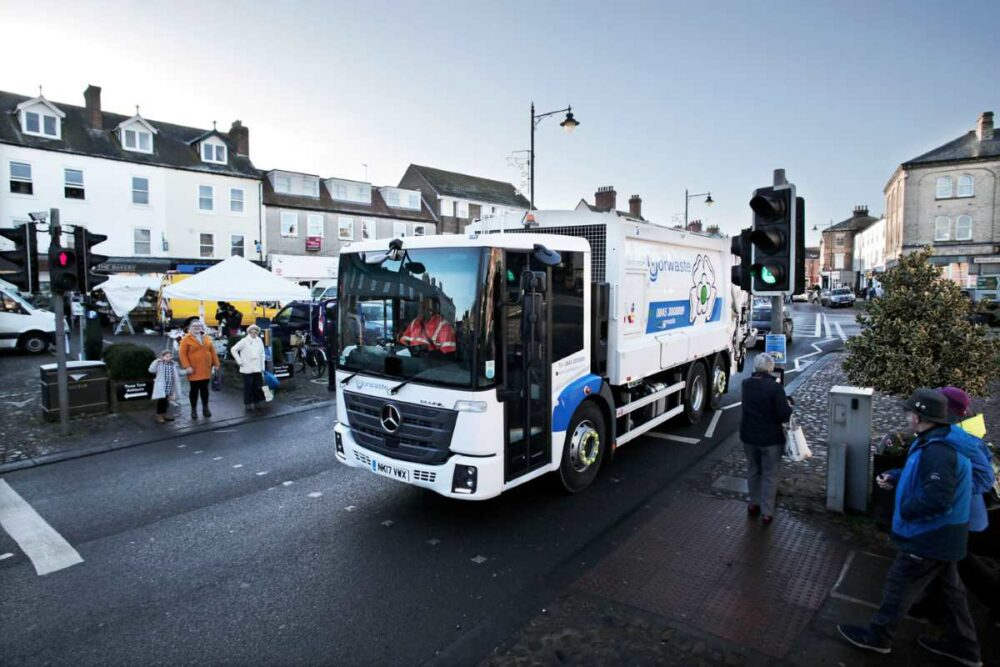A Window Into Glass Recycling
A Window Into Glass Recycling
Glass is one of the most recycled materials in the UK, second only to metal. Made from sand, soda ash and limestone, it is 100% recyclable and can be infinitely reprocessed without losing any of its original quality.
It takes less energy to recycle glass than it does to make new glass
A tonne of glass is needed to make around 4,000 recycled bottles or jars. However, the reprocessing of glass into new material uses far less energy than creating it from scratch. Not only does this result in lower pollutants, it saves on natural sand resources which are in short supply. In other words, recycled glass is greener than virgin glass.
And there’s more. Glass reprocessing adds over £1b to the UK economy annually.
So all in all, glass recycling is one of the greenest, most energy efficient forms of waste disposal, playing an important part in our circular economy.
The glass recycling process
A tonne of recycled glass saves over a tonne of natural resources. This is achieved using a surprisingly simple step-by-step process:
- Recycling bins are collected by local authorities or commercial waste companies, where they’re taken to the nearest recycling centre
- All waste is then sorted using a Material Recycling Facility, AKA a MRF (known in the business as a ‘Murf’). This will use mechanical and technical components to sort the glass from other recycling streams
- The material is then pre treated with air blowers and magnets to remove paper, plastics and metals
- The glass will then be mechanically colour sorted, if required.
- It is then crushed and melted in a furnace, before being moulded or blown into new products and shipped to manufacturers to use all over again
Could we be better at recycling glass?
The average UK home uses 500 glass bottles and jars each year. Yet, despite the ease of recyclability, we still only reprocess around 50% of our glass, meaning more than 28 billion glass bottles and jarss are being left out of the circular economy annually.
Glass does not decompose, therefore it’s essential more is done to make sure it’s disposed of responsibly, starting with effective recycling.
How do we recycle glass better?
As a rule, most commercial and domestic dry mixed recycling collectors ask the following:
- Try to reuse jars and bottles before your chose to dispose of them
- Place clean food, drinks and cosmetic jars and bottles in the recycling bin
- Remove caps and lids first
- Include all colours of glass – clear glass bottles contain around 25% recycled glass, whereas green bottles contain as much as 90% recycled glass
- Check that your glass is recyclable – some isn’t
If you’re unsure of how to dispose of glass waste, contact your local council or visit your local HWRC, where a site operative can advise you.
What glass cannot be recycled?
It’s important that you don’t contaminate recycling with items that cannot be reprocessed as this can result in it spoiling perfectly reusable materials.
Avoid:
- Broken glass – of any sort – it’s dangerous and unusable. It should be fully wrapped before placing it in the general waste bin to avoid injuries at any point in the waste disposal chain
- Cookware (like Pyrex), drinking glasses, vases, heatproof jugs, mirrors, window panes and light bulbs in your recycling bin – these cannot be melted, which is an essential aspect of glass reprocessing
- Milk bottles – these can go back onto your doorstep for your milk delivery service to deal with (milk bottles are used an average of 13 times before being recycled)
- Contaminated bottles, such as nail polish
Before disposing of your waste, ask yourself if it can be used in some other way. Glass mirrors may be used in gardens or for art projects, and old cookware may be useful for DIY projects.
Where to place commonly recycled glass items
- Your domestic dry mixed wheelie bins – different local authorities vary their bin colours, so double check if you’re staying away from home
- Bottle banks – the UK has more than 50,000 bottle banks, and each bank can hold 3,000 bottles
- Your local Household Waste Recycling Centre (HWRC)
- Many public bins now have a facility to separate general and recyclable waste
- Commercial waste bins – most businesses in the UK now separate their waste and provide facilities for commercial and staff waste to be recycled
Talk to Yorwaste
We provide mixed or stand alone glass recycling bins – the latter which are recommended for hospitality businesses and pubs that are generating more than 240-litre bins worth of glass waste. We work with a wide range of businesses, from manufacturers, offices and retail, to pubs, hotels, restaurants and other hospitality establishments, to collect and ensure their glass waste is reprocessed to its original form.
Contact our friendly team to discuss your recycling needs.


